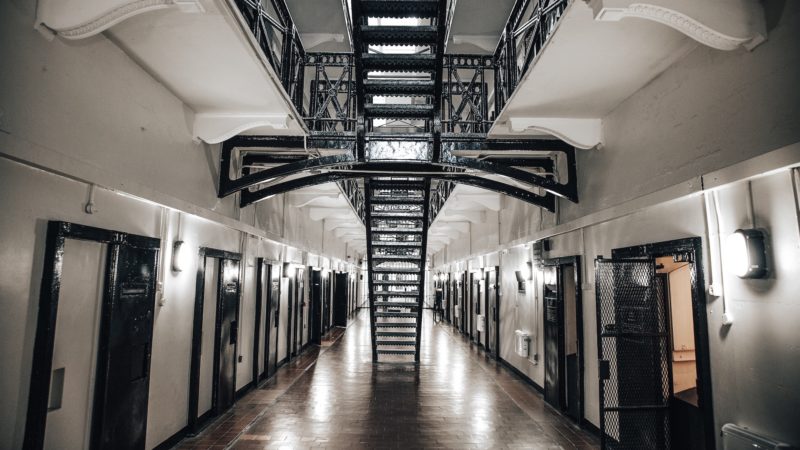
I worked in Holloway prison for six years. A number of the women I worked with were ‘foreign nationals’. Some of these women had been trafficked and endured extensive exploitation – but rather than being in the National Referral Mechanism, they were in prison. Some of these women had been trafficked and given false papers. They were then in prison for their false passport and obtaining a national insurance number through dodgy documents. In some cases, these crimes had enabled these women to work and to pay tax in the UK, prior to being picked up by the authorities.
A number of women I worked with came to the UK as children but for a variety of reasons had never got the paperwork that confirmed their British citizenship. That means when in their 30s they were caught shoplifting, or in their late 20s without a TV licence, things escalated quickly.
One woman we worked with was a year over her tariff (the sentence imposed by the judge). For reasons unknown, she remained in prison and not in an Immigration Removal Centre (IRC) like Harmondsworth or Colnbrook. She had lived here since she was six, having fled the Congolese civil war with the surviving members of her family. She was facing deportation back to Kinshasa, where she knew no-one and had nothing, 25 years after she’d left. A huge legal battle ensued meaning she was on the plane, on the tarmac when she had a reprieve and was brought back to the prison. She was then transferred to another prison. I don’t know how her story ended.
In another job, working post-prison, we worked with a young care leaver. Again, she had arrived as a young child. She had ended up in local authority care. We were trying to assist her in applying to university – but she had no proof of her citizenship. After a long, tenacious journey, we finally got the local authority, as her corporate parent, to admit its failing in not securing her citizenship when she turned 18. They agreed to pay for her to gain her citizenship, as it was their failings that meant she hadn’t previously received it. This all took many months of graft and advocacy from a caseworker to achieve. What if the caseworker hadn’t bothered? Would this bright young woman have ended up on a deportation flight because of the negligence of those who were meant to protect her?
Our immigration detention system is beyond broken. People’s human rights and citizenship rights are frequently violated and ignored. If there is any kind of silver lining to the hideous events of this week’s charter flight deportation, it’s that a much larger part of our population now know about these heinous flights and can be involved in the fight for ending this injustice.
It is the worst kind of politics that lazily characterises the people on these flights as ‘foreign national offenders’. It is a double othering – not just “bad people” but “bad people from other countries!” – designed to induce fear and place those arranging these flights above scrutiny. When you dig into the detail of some individual cases you find people who have lived here over 20 years, with families here, who served as little as two months.
These flights are part of an unjust machinery. They are inspected by the Justice Inspectorates, who scrutinise them but have no power to insist on the implementation of the recommendations made. If someone dies in detention, it is investigated by the Prison and Probation Ombudsman, who then make recommendations. But, again, they have no mechanism to ensure implementation of their findings. So, the inhumane treatment goes on. The machinery needs to be dismantled and replaced with a just system. In the meantime, is it too much to ask that people are held with humanity and decency? And in conditions that are safe?
In light of Brexit and a new relationship with the world, as internationalists, as socialists and as anti-racists, we need to stand with those at the sharp end of these deportations. We must insist on a fair and proportionate system. As this brilliant thread by the End Violence Against Women coalition points out – when will Rolf Harris be deported? This is about power and who wields it. The incredible David Lammy MP asked on Monday – when, when will black lives matter once again? We urgently need new systems to prevent lives being shattered and to prevent even graver injustices.
Sara Hyde is currently running to be a Labour candidate for the London Assembly.




More from LabourList
‘Labour is being badly misled on housing’
Reeves bets on patience over populism
‘Energy efficiency changes must work for older private renters’